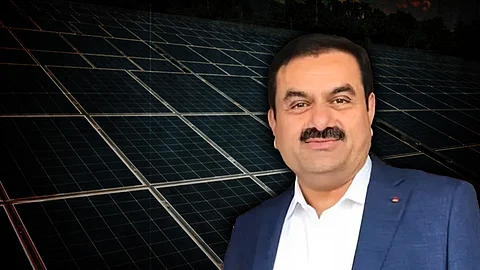

On April 21, 2023, defence ministry officials convened a meeting in Delhi, attended by officials from the Indian Army, the ministry of renewable energy, and the Gujarat government, to discuss the defence restrictions that were coming in the way of the Solar Energy Corporation of India’s project in Gujarat’s Kutch region.
SECI, a public sector firm, had been allotted 23,000 hectares of land by the Gujarat government in Kutch, as part of a renewable energy park that the state claimed would be the largest in the world, covering an area almost as large as Singapore.
But there was a hurdle: the land allotted to SECI was strikingly close to India’s border with Pakistan. As the firm noted in a letter to the Gujarat government, prevailing defence restrictions meant it could only build wind turbines on the land, not solar panels. This made the project economically unfeasible, SECI argued.
At the April meeting, also attended by SECI officials, the defence ministry agreed to relax the restrictions, allowing wind turbines to be built at a distance of 1 km from the border and solar panels at a distance of 2 km.
Despite the SECI’s concerns being addressed, three months later, the firm surrendered the land on the instructions of the renewable energy minister. The Gujarat government then went on to allocate it to the Adani Group, reversing its earlier decision to reserve it for public sector firms.
The Adani Group now holds 445 sq km of land in the park. Earlier, it had the largest allocation after SECI – now, it has more land than all the other developers combined.